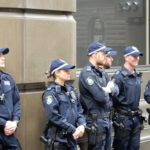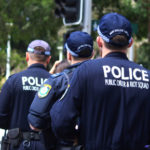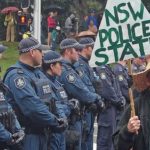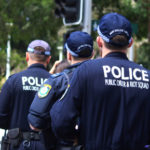The Second Wave: How COVID Police Powers Could Become Permanent
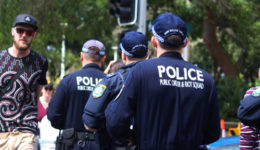
The huge number of COVID-19 infections and deaths in the United States hasn’t prevented the right-wing nutjobs from taking to the streets – some bearing arms – calling for an end to lockdown restrictions and a prioritisation of economic activity over the virus-vulnerable.
Over here in Australia, this contingent hasn’t made itself known, rather what’s occurring is a healthy questioning of the expansive powers that have been handed to police. Doubts about isolating have been assuaged, but fears that new police powers may not be rolled back haven’t been.
Following the turn of the century 9/11 attacks and the Bali Bombings, a swag of antiterrorist laws began being passed in this country and extraordinary powers were handed to police. But, unlike extreme wartime measures that expired with the conflicts, terrorism laws have gained permanency.
It’s difficult to see how authorities could justify keeping some of the new public health restrictions on the books, especially as government ministers and police commissioners have assured the public that they’re specific to the COVID-19 pandemic.
But, that’s until you consider the second wave.
Gates’ COVID play date
The Bill and Melinda Gates Foundation, in conjunction with the World Economic Forum and the John Hopkins Centre for Health Security, held a coronavirus pandemic simulation exercise in New York City on 18 October last year.
The aim was to educate senior leaders on how to act during a crisis just like the one we’re going through now. Representatives from around the globe – including the United Nations and key corporations – sat down and workshopped how they’d be reacting right now.
Dubbed Event 201, the coronavirus simulation concluded on a frightening note: while governments were able to control the initial outbreak, a second wave – much bigger than the first – broke out in the developing world.
And in the end, the pandemic claimed 65 million lives globally in the first 18 months.
It’s true this was simply a mock pandemic, but the idea of a second wave of infections seems fairly plausible. And just like in the simulation, experts are now predicting that the frontline of the fatal virus is about to shift to the Global South.
The second wave necessitates
With the fear of a second pandemic wave being valid, it would then seem necessary to keep certain measures in place to guard against the virus reappearing in areas where it’s been eradicated. And we can rest assured these considerations are already being discussed and planned for.
So, take NSW. If infections slow in this state – as is already happening – and we’re allowed back out on the streets, whilst maintaining distancing, the borders aren’t going to be reopened in the same manner as they were before, if there’s still a chance of infected people arriving from overseas.
These concerns around a COVID-19 reappearance are also the ideal justification for the NSW Police Force to keep its extraordinary new powers in play. It’s that just-in-case clause, and it remains disease specific.
And just like the many antiterrorism laws sitting on the books, these restrictions may not be enforced on a daily basis, but they’ll always be there if the opportunity arises.



